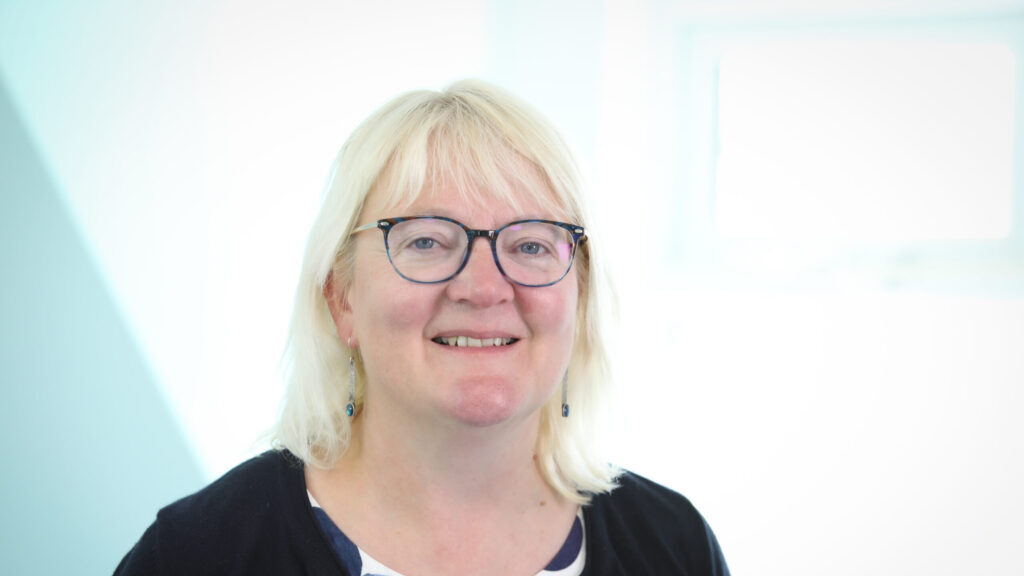My career in care: Belinda Robinson, director of development, National Care Group

Belinda Robinson, director of development at National Care Group, looks back on her career in care, recalls the changes brought about by the NHS and Community Care Act 1990 and the progress in the sector since, as well as looking ahead to the future.
“Looking back at all the changes that happened at the start of my career, I can’t help but wonder why it didn’t happen sooner,” says Belinda, who began working just as the government’s Care in the Community policy to move learning disability care out of hospitals was emerging.
The first long-stay institution to be impacted was Darenth Park Hospital in Kent, which closed in 1988. The vulnerable adults who moved out of the hospital returned to live in their own communities, with local health authority professionals such as Belinda providing support.
“In the past, most people with a learning disability would go to a Victorian institution – the old asylums like Darenth – unless their parents really fought against it,” Belinda says.
“I’ve spoken to many families who were told that because their child had a disability, they’d never be able to achieve anything. Shockingly, they were told that they might as well put them away and forget about them.”
Helping reintegrate vulnerable adults into their own homes taught Belinda a valuable lesson regarding care and support in the community.
By providing a comforting mix of homely surroundings with assisted care, those supported can feel inspired to reach new goals in life, which may not have been available under the strict confines of old care regimes. Having previously worked within the health service, and switching focus to voluntary and independent sectors, Belinda notes how these organisations she says allowed greater freedom in how to support people.
“We weren’t constricted by health service expectations and bureaucracy,” she says. “It was a really positive step and my career has continued to mirror that approach. I have spent many years moving people out of institutional environments into their own homes in the community.”
In 2009, Belinda was involved in the closure of Orchard Hill Hospital in Sutton, Southwest London – the last NHS long-stay hospital to close.
“I went from the first one closing to the last one. I was helping families to make the transition – it was difficult for them because they were expected to trust these social care providers who they didn’t know,” Belinda says.
“It’s a lot to deal with if you’ve been told that your son or daughter will never achieve anything, can’t be in an ordinary environment, then after 30 or more years you’re told they can now live in their own home in the community.”
Fresh from the achievement of first helping people move back into the community, Belinda and her colleagues realised the support offered had to go further.
“We would support people at home with their housework, cooking and out to the cinema, to the pub and to do their own shopping,” Belinda says.
“It was quite ordinary stuff but it was an instinctive way of working. You could look at it in modern terms now, such as developing capable environments, supporting positive social interactions and engaging in ordinary and meaningful activities.”
During her successful career, Belinda has enjoyed seeing the progress in enabling people to thrive by creating the right environments – and highly values staff training and the key role of managers in providing practice leadership. Today, she operates as director of development at National Care Group, a nationwide adult social care provider that supports more than 1,200 people and employs over 2,000 colleagues that work tirelessly to help unlock each individual’s potential.
Part of her role is to create collaborative working models that improve people’s quality of life. Though there are often concerns within the care industry that current structures and controls can affect the ability to be more flexible, Belinda is keen to see more partnership working and better forward planning in the sector.
“We’ve got some really good examples in our organisation of delivering excellent outcomes for people – we’ve got the right environment and support and can help people to progress to gain greater levels of control over their lives,” Belinda says.
“It’s about identifying local need and working with local commissioners to ensure the desires of the people we support and their families are met. For example, we recently worked closely with a local county council to develop a service that supports adults with learning disabilities.
“Previously, many adults were placed in services outside of the county, due to limited options in the area. This made it difficult for families to be near and support their loved ones, exacerbating the care needs of the person. However, by involving relevant public sector parties in planning from the offset, we reduced the pressures elsewhere and are enabling people to reach their potential.
“As you can see, it takes a lot of investment – not just money but also time and with our partners planning together to achieve a common goal.”
And Belinda added: “I’ve had a great career working for different organisations and with some brilliant people. I’ve seen many lives change but can’t help but think that people should never have been put in those circumstances in the first place.”



